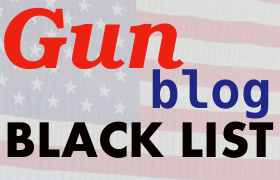The Bubblehead Less News Network sent me a glut of court cases. Let’s talk about them!
First up some Environmental Law:
The Supreme Court largely left intact Monday the Obama administration’s only existing program to limit power plant and factory emissions of the gases blamed for global warming. But a divided court also rebuked environmental regulators for taking too much authority into their own hands without congressional approval.
The justices said in a 5-4 vote along ideological lines that the Environmental Protection Agency cannot apply a permitting provision of the Clean Air Act to new and expanded power plants, refineries and factories solely because they emit greenhouse gases.
The decision underscores the limits of using the Clean Air Act to deal with greenhouse gases and the administration’s inability to get climate change legislation through Congress.
“The Supreme Court put EPA on a leash but not in a noose,” said Michael Gerrard, director of Columbia University’s Center for Climate Change Law.
“It reaffirmed that EPA can regulate greenhouse gases, but it can only go so far in reinterpreting the statute,” Gerrard said. “The court invalidated a small corner of a secondary program. The main event – EPA’s proposed rules on existing power plants – remains to be fought another day.”
Interesting. Also speaking of Government Overreach! The TSA!
The U.S. government’s no-fly list banning people accused of links to terrorism from commercial flights violates their constitutional rights because it gives them no meaningful way to contest that decision, a federal judge ruled on Tuesday.
U.S. District Judge Anna Brown, ruling on a lawsuit filed in federal court in Oregon by 13 Muslim Americans who were branded with the no-fly status, ordered the government to come up with new procedures that allow people on the no-fly list to challenge that designation.
“The court concludes international travel is not a mere convenience or luxury in this modern world. Indeed, for many international travel is a necessary aspect of liberties sacred to members of a free society,” Brown wrote in her 65-page ruling.
“Accordingly, on this record the court concludes plaintiffs inclusion on the no-fly list constitutes a significant deprivation of their liberty interests in international travel,” Brown said.
The decision hands a major victory to the 13 plaintiffs – four of them veterans of the U.S. military – who deny they have links to terrorism and say they only learned of their no-fly status when they arrived at an airport and were blocked from boarding a flight.
The American Civil Liberties Union, which brought suit against the policy in 2010, argues that secrecy surrounding the list and lack of any reasonable opportunity for plaintiffs to fight their placement on it violates their clients’ constitutional rights to due process.
Also given that the list is secret, you can’t tell when you’re on a list until your vacation plans are ruined, so I imagine that the due process to challenge the “No Fly List” would also require the list be made public which would let us see the dark underbelly of this crappy law.
This goes double when you note the number of ACTUAL terrorists who flew regularly before being apprehended by the FBI and other law enforcement.
Oh and on your 4th Amendment rights?
Cellphones and smartphones generally cannot be searched by police without a warrant during arrests, the Supreme Court ruled unanimously Wednesday in a major victory for privacy rights.
Ruling on two cases from California and Massachusetts, the justices acknowledged both a right to privacy and a need to investigate crimes. But they came down squarely on the side of privacy rights.
“Modern cellphones, as a category, implicate privacy concerns far beyond those implicated by the search of a cigarette pack, a wallet or a purse,” Chief Justice John Roberts wrote for the court.
“We cannot deny that our decision today will have an impact on the ability of law enforcement to combat crime,” he said. “Privacy comes at a cost.”
Yep, smartphones have more than just your call records. They have your photographs, access to your email, recordings of police interactions, and even things like your banking records. I see a search of a cellphone as no different than a search of your home. Not only do they need a warrant, but they need to say WHAT they are searching, and what they are looking for, and anything else turned up or stumbled upon must be left in place, and not admitted to the courts.
Good rulings, all of them.




The TSA thing: ” . . . secrecy surrounding the list . . .”. Secret government lists. You’ve got to step back for a moment to let the import of that idea sink in. (I’m one who used to believe if you were law-abiding and had your heart in the right place, you were more less immunized against government overreach. That was then.)